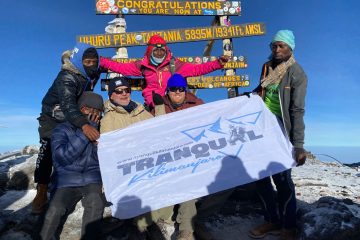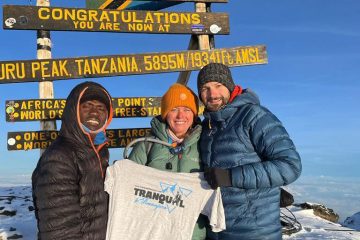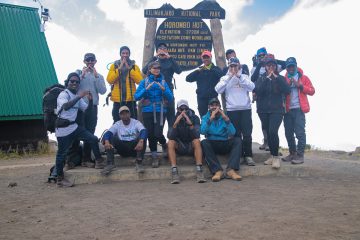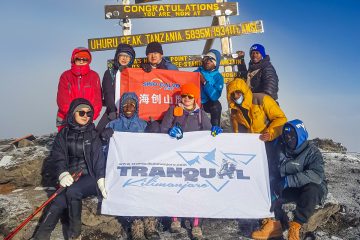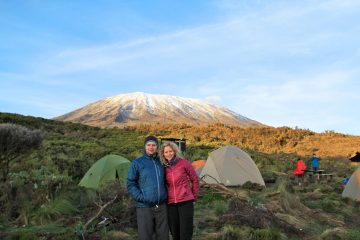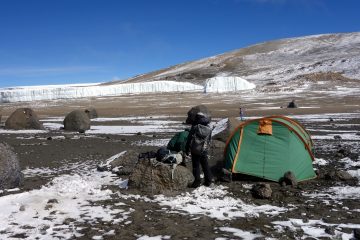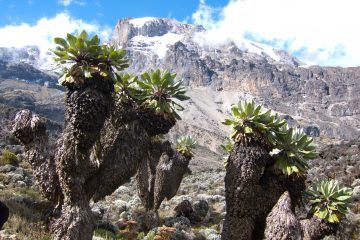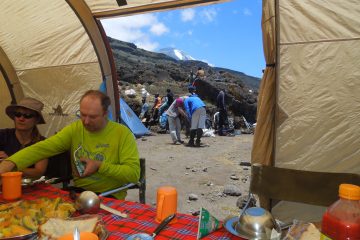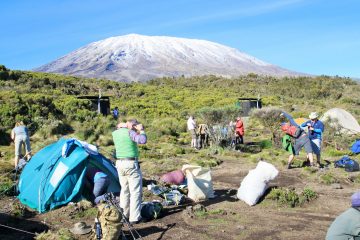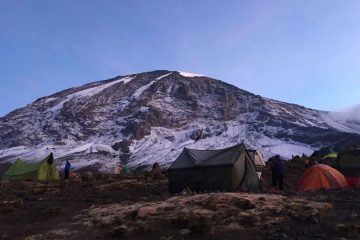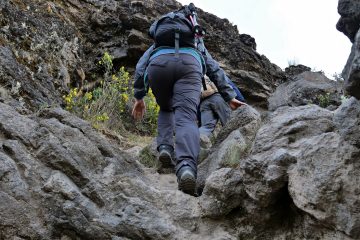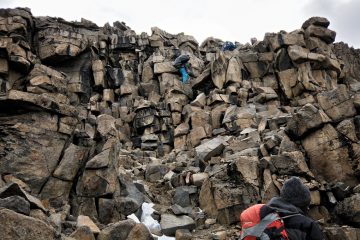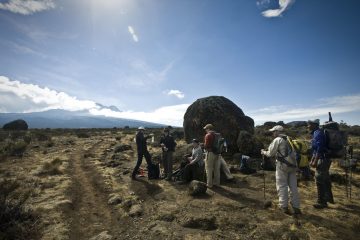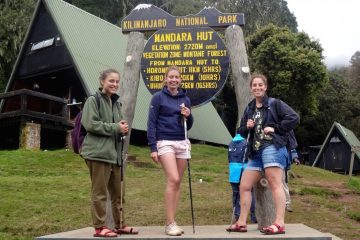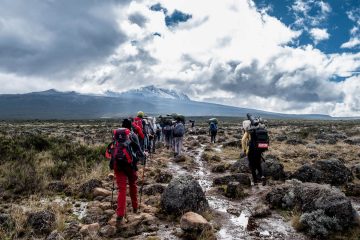The preparation for climbing Kilimanjaro should come first on your list of priorities and acclimatization plays a great role in deciding if you will summit successfuly or not. You MUST arrive physically prepared.
For the best acclimatization before climbing Kilimanjaro, you should spend at least 8 days up there. This means that before climbing farther up Mount Kilimanjaro, you must spend 5 nights sleeping below 4,000 meters (13,123 feet). According to research, it will take more time for you to get used to the reduced oxygen levels at 3,500m/11,500ft. Your body requires time to adapt and acclimate to low oxygen levels. You will struggle higher up if you don’t adjust well lower down. This implies that by climbing higher, you are taking a tremendous risk.
What is Acclimatization?
Acclimatization in mountaineering is the process in which climbers gradually adjust in response to change in the environment, specifically to altitude change.
For example, as you climb Kilimanjaro, the environmental conditions change, so you have to adapt to keep up with these changes brought about by altitude transformation.
What happens during acclimatization?
The higher you go, the lesser the pressure pushes air molecules together, causing oxygen molecules to become fewer and less together.
Best acclimatization advice for Kilimanjaro
The best Kilimanjaro climbing acclimatization advice is fairly straightforward. Spend more time. Each day you spend on the mountain does increase the expense, but believe us when we say that it is worth every penny. Do it right; this is a once-in-a-lifetime opportunity. Unquestionably, more acclimatization equates to greater safety. You’ll have an easier time climbing Kilimanjaro and will return safely thanks to the extra time. As a result, we strongly advise spending at least 8 days climbing Kilimanjaro.
When ascending in a low-oxygen environment, all your body needs is more oxygen. Your body will be warmer and more effective at carrying oxygen if you spend more time producing red blood cells.
You’ll be able to climb to the top of Africa more easily and safely as a result of this. Don’t be duped by the less expensive, less difficult Kilimanjaro climbs.
Kilimanjaro’s summit success rate varies from 55% to 60% depending on the season and the route that you choose. Why go all the way to Africa and not succeed in climbing the mountain because you chose a cheap trip and didn’t follow the proper acclimatization procedures?
What to do to Acclimatize and prevent altitude sickness while climbing Kilimanjaro
Below are the correct steps to take to acclimatize properly on the mountain
Walk Slowly (pole pole)
Mount Kilimanjaro is a test of patience and stamina, not a race. When you are climbing the mountain, take it slow, one step at a time. Pole pole is a Swahili term that translates to “slowly, slowly” so take it slow and you’re your body enough time to adapt to the changes in altitude. The higher you go, the cooler it becomes also the higher the altitude meaning these higher altitudes will make it harder for your body to just fit in abruptly.
Stay hydrated by drinking plenty of water
The other secret to beating altitude sickness and acclimatizing properly is to keep your body hydrated all the time by drink plenty of water. Drinking water is one of the best methods and we recommend you drink 4-5 liters or even more per day on the mountain. Always lookout for the color of the urine, the lighter in color, the better, and it can only get better if you drink as much water as possible.
Climb high sleep low
Doing treks that gain higher altitudes, then sleeping at lower altitudes is another way of acclimatizing properly to minimize altitude sickness. Your mount Kilimanjaro guide will probably use this practice of “Climb high; sleep low.”
Avoid tobacco and alcohol
Alcohol and tobacco products like cigarettes are depressants. Depressants decrease the respiratory drive when you sleep, this will worsen your altitude sickness symptoms. Other depressant drugs that you should avoid while climbing is barbiturates, tranquillizers, and sleeping pills.
Eat nutritious rich food
You will be doing strenuous activities like trekking, you will need energy which can be found in a high carbohydrate diet you will probably burn more than 70% of your calories from your carbohydrates intake while trekking at high altitudes.
In case you notice altitude symptoms
The best thing to do when you notice mild symptoms of altitude sickness is to find lower ground and retreat to a place of lower elevation until the symptoms decrease then resume your trekking once you feel better.
Preventive Medications
Diamox (Acetazolamide) improves your breathing rate, helping you to breathe faster so that you can metabolize more oxygen., this helps in the minimization of symptoms caused by poor oxygen intake and circulation. In the event that you have a deprived respiratory drive, Diamox will come in handy. You are advised to take Diamox at least 24 hours prior /before beginning your trek to high altitude since it takes a little longer for it to start working and be effective.
Side effects of Diamox
Every drug has side effects, some may be mild or severe. As for Diamox, these are the possible side effects
- Tingling of the lips and finger tips
- blurring of vision,
- alteration of taste.
These side effects will go away once you stop using Diamox
WE HIGHLY RECOMMEND that you follow your physician’s prescription, since Diamox is a sulfonamide drug, it is not advisable to take the drugs if you are allergic to sulfa drugs as it may cause severe allergic reactions to first time users or people with sulfa allergies.
Dexamethasone (a steroid) This is another drug that minimizes the symptoms of Altitude sickness by reversing the effects of AMS and decreasing brain, and other types of swelling. You are advised to take a dosage of 4 mg, two times a day, beginning with the ascent.
WE HIGHLY RECOMMEND that you get a proper prescription from your physician in case of possible side effects that may prove serious when you are under the dosage of Dexamethasone. This drug may also be combined with Diamox. No other medications have been clinically proven to prevent AMS other than this drug.


